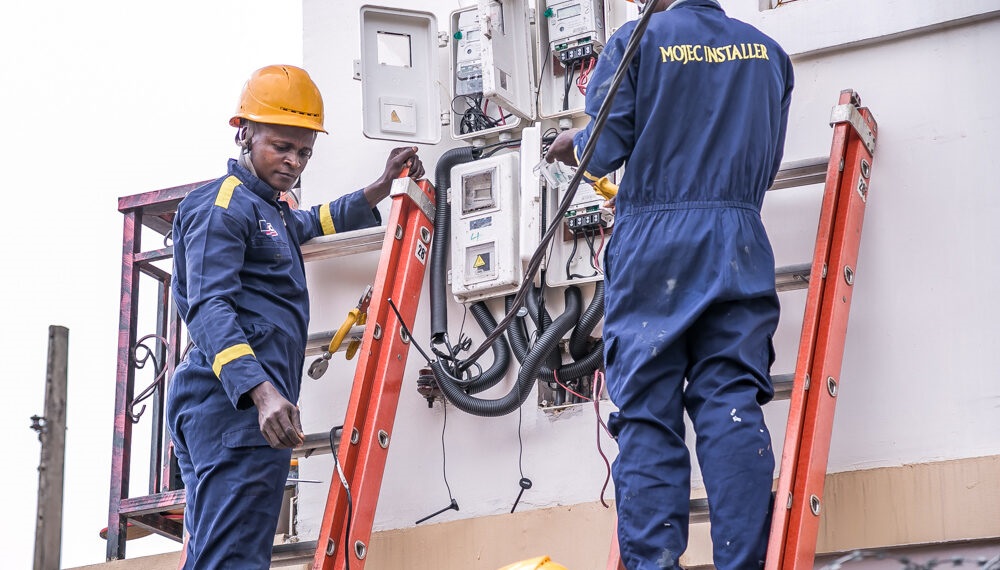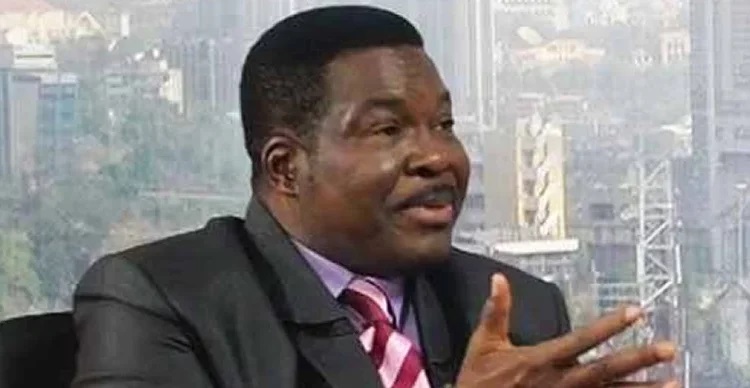Some experts and professionals have advised the Federal Government to reconsider its decision to deliver 75,000 electricity meters under the International Competitive Bid 1.
The News Agency of Nigeria (NAN) reports that the Minster for Power, Mr Adebayo Adelabu, in a statement on April 6, said that the government would deliver the first batch of over 3.2 million electricity meters procured to bridge the over 7 million units metering gap in the country.
The minister said 75,000 meters under the International Competitive Bid 1 are expected by April 2025, while the second batch of 200,000 meters would follow in May.
Reacting, Mrs Atinuke Owolabi, the President, APC Professional Women Network & Coalition of Professional Women in Politics, said that the government’s priority should be the protection of local manufacturers of meters to boost industries and create jobs.
Owolabi, the Chairman of the Association of Professional Women Engineers of Nigeria, Lagos Chapter, in a statement on Monday, urged the government to rescind its decision to import meters.
According to her, the current actions are a clear disincentive to backward integration and counterproductive to the country’s industrial growth.
Owolabi, who is also the Managing Director/CEO of Wurvicat International Ltd., said that the exercise could start with national competitive bidding.
She advised the government to borrow a leaf from the President of the United States, Donald Trump, who disrupted the new world order and globalisation by promoting trade wars through tariffs, championing protectionism with the sole aim of bringing back jobs and industries to the U.S.
She said that Nigeria’s economy cannot survive by being 95 per cent import-dependent, thriving solely on a service-based structure without strong industries and a functional manufacturing sub-sector.
Owolabi said: “What we need is re-industrialisation, wealth creation, backward integration, gainful employment, and sustainable growth and development.
“The question now is: How many of these meters are being sourced from Nigerian manufacturers?
“If the Minister of Power is deliberately sidelining local manufacturers for selfish or ulterior motives, I will have no choice but to write a personal letter to President Bola Tinubu and copy the youth organisations along with other relevant and critical stakeholders.”
The expert said that the country could try as much as possible to encourage local industries in all decisions and policies.
“Thousands of our youth are unemployed and roaming the streets, yet the minister appears more concerned about purchasing meters from abroad.
“Why can’t we channel that same funding into strengthening local meter manufacturers?
“Why not begin with national competitive bidding, rather than rushing into international competitive bidding?
“What truly matters is that the tender parameters are structured to meet global standards without compromising national interest,” she said.
She said that this was the time for leaders to genuinely prove their care for the nation’s future.
Similarly, the Nigerian Consumer Protection Network implored the Federal Government to consider the protection of indigenous manufacturers of meters in the country.
Mr Kunle Olubiyo, the President of the group, in a statement, commended the minister of power for his efforts to narrow the wide metering gap in the country.
According to him, however, the government must stop the international bidding for the meters.
He said that for the country to develop, local meter manufacturers who are part and parcel of the country’s manufacturing sub-sector must be carried along.
Olubiyo said that the development would pave way for job creation and transfer of knowledge, technology, and closure of skills gaps in the metering value chain.
“Moving forward, the federal government should at all times strike a balance such that Nigeria wouldn’t end up exporting jobs meant for Nigerian youth to China and other Asian countries.
“While on the other hand, importing poverty and unemployment embedded in a 100 per cent sole imports-dependent economy.
“Nigerian government should think through these noble objectives and endeavour to strike an equitable balance to give the local industry a fair deal,” he said. (NAN)





